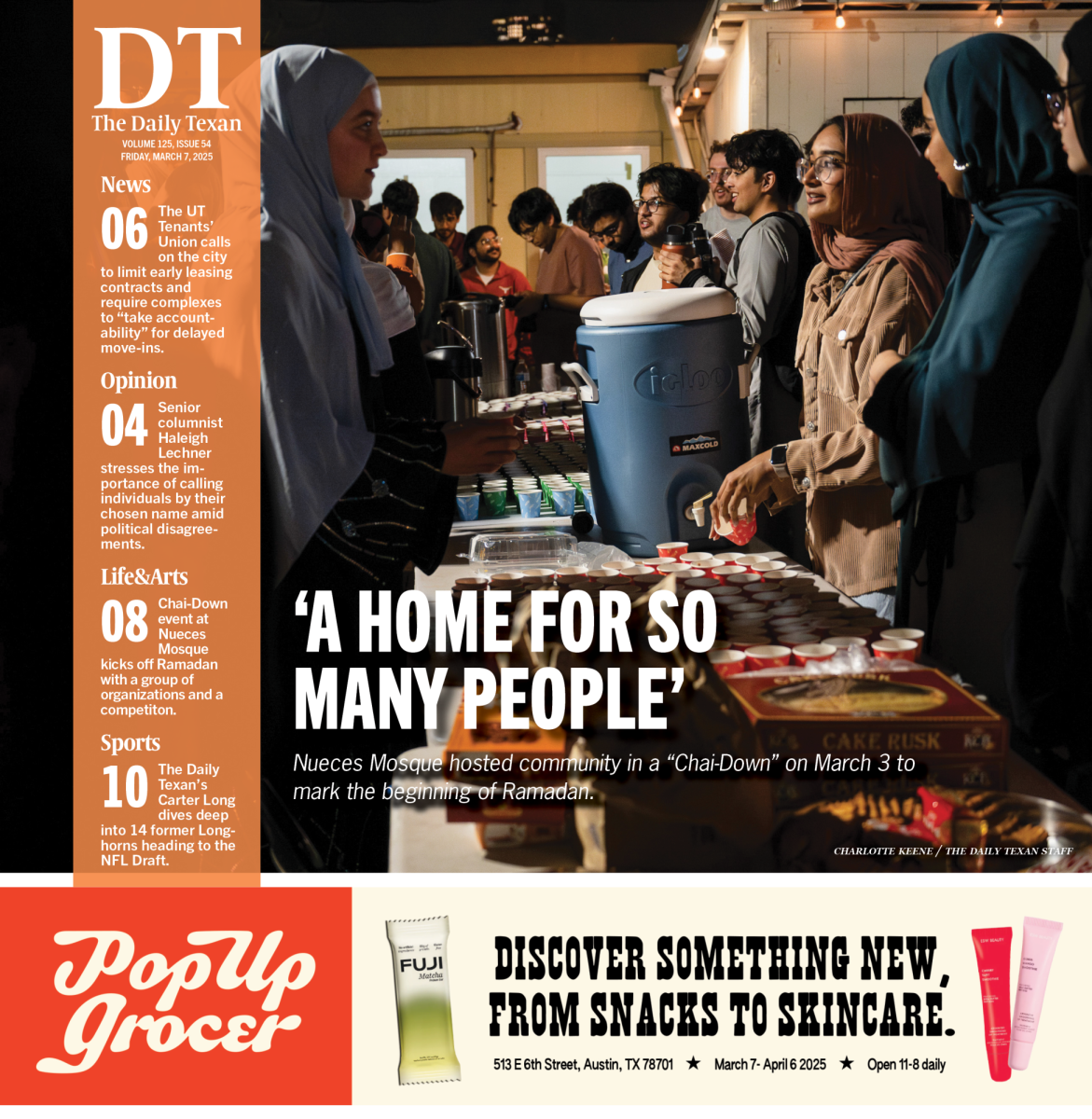Graduate Student Assembly passes legislation to extend funding, program time for graduate students
April 15, 2021
Editor’s Note: This article first appeared in the April 13 issue of The Daily Texan.
Graduate students are urging the University to grant an extension of funding and time to complete their research, dissertations and theses.
The Graduate Student Assembly passed legislation Wednesday asking for an extension of funding and allowing zero-hour registration, which allows students to not register for any classes but still have access to University facilities, such as research centers and libraries, for at least one year.
Christina Baze, the fall 2020 assembly president, said she planned to graduate in May but had to push back her graduation to August. She said it was difficult to complete a higher-quality dissertation due to limited internet access and having to take care of her two children doing virtual classes.
“I don’t have funding for the summer (session) to pay tuition out of pocket,” said Baze, a STEM education graduate student. “It would be great if the graduate school would extend zero-hour registration just to get rid of that one little administrative detail that I have to be registered for dissertation credits on my last semester.”
Annie Bares, co-author of the legislation and a member of Underpaid at UT, a graduate student worker organization that works to remove financial barriers for graduate students, said Underpaid at UT made a list of demands last May that include the recently passed legislation.
Other demands included providing workers with personal protective equipment if they are required to be on campus, compensating graduate students with hazard pay and reducing their tuition.
In December, the Texas State Employees Union and Underpaid at UT hosted a town hall where UT System staff, faculty and students voiced support for these and other demands related to the University’s COVID-19 response.
English graduate student Bares said she needs more time to complete her dissertation because of the switch to an online environment.
“Myself and most other graduate students that I know spent much of the summer — especially if we were going to start teaching in the fall — really preparing and going to all kinds of workshops, reading about online teaching and giving ourselves a crash course in how to do a good job teaching online,” Bares said.
The University provided an extra COVID-19 related extension period on scholarly and creative productivity for tenured faculty, and Barnes said the University should extend these same accommodations to all graduate students.
Daedelus Hoffman, who co-authored the legislation, said some graduate students in the School of Fine Arts were adversely affected by the move online.
“You could imagine the way musicians, who rely on recording equipment (and) facilities that they couldn’t have at home … or people in dance (or) people in technical theater, who need access to high-end equipment that they don’t have, (haven’t had access to necessary resources),” said Hoffman, an art history graduate student.
Hoffman said funding and program extensions do already occur, but vary by department. He said the authors of the legislation are trying to limit those inconsistencies and make it more uniform across the University.
English graduate student Lindsey Holmes said taking her 3-year-old daughter out of childcare when the pandemic began meant she did not have a lot of time to focus on her research. Holmes said her daughter has since gone back to childcare, but the ongoing pandemic means her daughter could have to stay home again, and the pandemic’s impacts go past the classroom.
“When we first went online (in) spring 2020 there was a sense of, ‘This is crazy, just whatever you can get done is fine,’” Holmes said. “The following semester is more a back-to-business-as-usual kind of thing, but my daughter was still home.”












